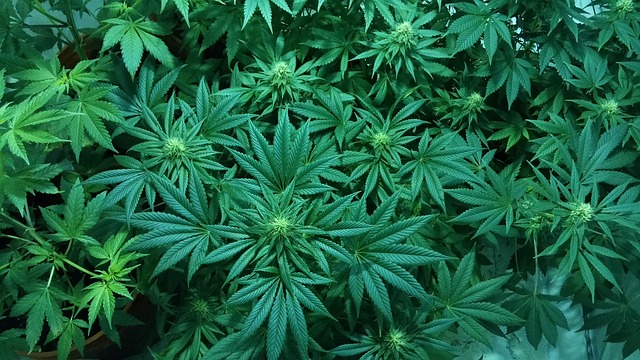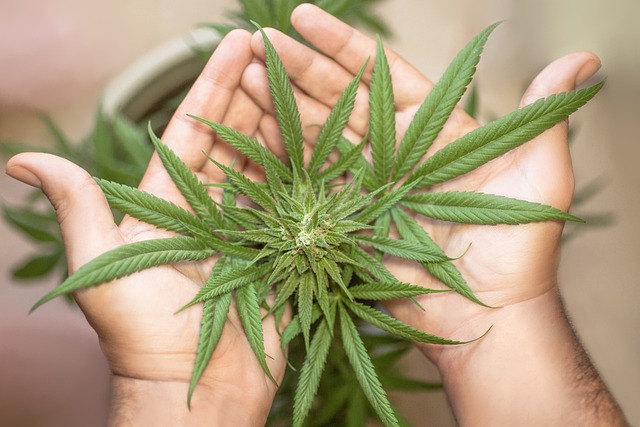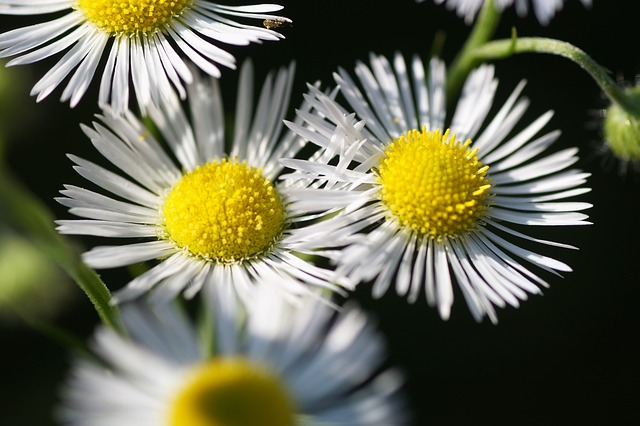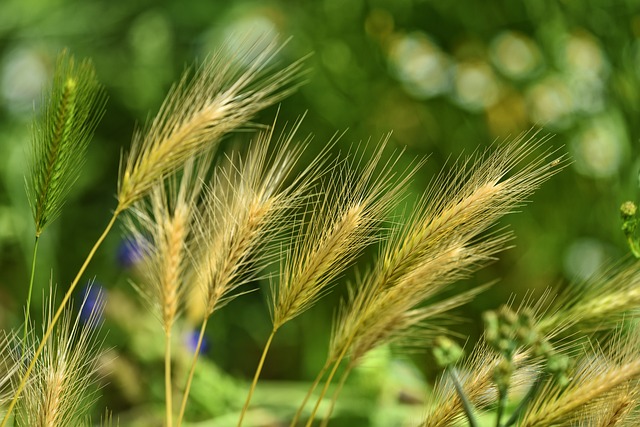
THCA flower extract is a non-psychoactive compound derived from raw cannabis plants, offering therapeutic benefits without inducing a high. Its anti-inflammatory and neuroprotective properties suggest potential in treating pain, inflammation, neurological conditions, and as a cytotoxic agent against certain cancer cell lines, though clinical trials are needed for confirmation. The extract also has mood-regulating, sleep-improving, and appetite-modulating effects, along with antioxidant properties that may combat oxidative stress. Its full-spectrum form, which includes THCA alongside other cannabinoids, terpenes, and flavonoids, is thought to enhance these benefits through the 'Entourage Effect'. THCA flower extract is versatile, available in various forms, and is being recognized for its role in holistic health practices as a natural alternative to traditional pain relief and medications. Its growing popularity is due to its broad range of potential health applications, making it a noteworthy addition to wellness routines. Users are advised to consult healthcare professionals for guidance on usage and dosage.
Discover the multifaceted wellness advantages of THCA flower extract, a naturally occurring compound in hemp that has garnered attention for its potential health benefits. This comprehensive article unravels the therapeutic properties of THCA, exploring its composition, forms, and the synergistic effects when used alongside other cannabinoids. Dive into the science behind THCA flower extract’s role in pain relief, inflammation reduction, neuroprotection, antioxidant defense, gastrointestinal support, cardiovascular health promotion, and its anti-cancer potential. As a natural alternative or complementary treatment, THCA flower extract offers a range of benefits that are worth exploring for those seeking to enhance their wellness routine. Join us as we navigate the legal considerations, proper usage, and future research directions of this promising extract.
- Unlocking the Therapeutic Potential of THCA Flower Extract
- THCA Flower Extract: A Closer Look at Its Composition and Forms
- The Entourage Effect: How THCA Flower Extract Works in Synergy with Other Cannabinoids
- Benefits of THCA Flower Extract for Pain Relief
Unlocking the Therapeutic Potential of THCA Flower Extract

THCA flower extract, derived from the raw cannabis plant, has garnered attention for its therapeutic potential. Unlike its psychoactive counterpart THC, THCA is non-psychoactive, allowing users to experience its benefits without the ‘high’ associated with traditional marijuana use. This makes it a valuable option for individuals seeking relief from various conditions or looking to enhance their wellness routine without cognitive impairment. Studies have suggested that THCA flower extract possesses anti-inflammatory and neuroprotective properties, making it a promising compound for managing pain, inflammation, and certain neurological disorders. Its interaction with the body’s endocannabinoid system may help regulate functions like mood, sleep, and appetite. Moreover, preliminary research indicates that THCA could have potential in cancer treatment, demonstrating cytotoxic effects on certain cancer cell lines, though further clinical studies are necessary to substantiate these findings.
The extract’s benefits extend beyond its therapeutic applications. It is also recognized for its potential role in promoting overall health and well-being. Users often report a sense of calm and reduced anxiety levels when using THCA flower extract. Its anti-oxidative properties may aid in combating oxidative stress, a factor implicated in the aging process and various diseases. As interest in cannabinoids continues to grow, the exploration of THCA flower extract’s benefits is an exciting frontier in natural health solutions. Users interested in incorporating this extract into their health regimen should consult with healthcare professionals to ensure it aligns with their individual health needs and to understand the appropriate dosing for optimal therapeutic effects.
THCA Flower Extract: A Closer Look at Its Composition and Forms

THCA, or Tetrahydrocannabinolic Acid, is the raw cannabinoid found in the resinous trichomes of the Cannabis sativa plant. Upon heating, THCA converts to THC, the psychoactive compound most commonly associated with the plant’s effects. However, recent research has brought attention to the unique benefits of THCA itself, particularly when extracted from the flower in its natural form. THCA Flower Extract is a concentrated form of this cannabinoid, capturing the full spectrum of its potential therapeutic properties without the psychoactive impact of THC.
This extract is praised for its rich composition that includes not only THCA but also a variety of other beneficial compounds such as terpenes and flavonoids. These components work synergistically to provide a wide array of benefits, which may include anti-inflammatory, analgesic, and neuroprotective effects. The forms of THCA Flower Extract available are varied, including oils, capsules, and topical applications, allowing users to experience its benefits in the manner that suits them best. Whether ingested or applied topically, this extract is gaining popularity among those seeking natural alternatives for health and wellness. Users report experiencing relief from various ailments without the “high” associated with THC, making it an attractive option for a wide range of individuals looking to harness cannabis’s therapeutic potential.
The Entourage Effect: How THCA Flower Extract Works in Synergy with Other Cannabinoids

The therapeutic properties of cannabis are often attributed to the combined effects of its various compounds. This synergistic interaction is commonly referred to as the ‘Entourage Effect.’ In the context of THCA flower extract benefits, this effect plays a pivotal role. Tetrahydrocannabinolic acid (THCA) is the non-psychoactive precursor to delta-9-tetrahydrocannabinol (THC), and it is found in abundance in raw cannabis plants. Extracting THCA from flowers preserves its potential therapeutic benefits without the psychoactive effects associated with THC upon heating. When used in conjunction with other cannabinoids, terpenes, and flavonoids present in the plant, THCA flower extract exhibits a broader spectrum of effects than if used alone. This synergy can enhance the pain-relieving, anti-inflammatory, and mood-stabilizing properties of the extract, making it a more potent and holistic treatment option for various conditions.
Furthermore, the Entourage Effect underscores the importance of the full-spectrum nature of THCA flower extract. Unlike isolated THC, which may target specific symptoms, THCA flower extract benefits from the combined actions of multiple cannabis compounds. This holistic approach to treatment can lead to a more effective and well-rounded therapeutic experience. Users may experience not only relief from their symptoms but also an improved sense of well-being, as the various components work in tandem to modulate the body’s endocannabinoid system. The Entourage Effect thereby highlights the significance of considering the whole plant and its complex chemistry when evaluating THCA flower extract benefits for health and wellness.
Benefits of THCA Flower Extract for Pain Relief

THCA flower extract, derived from the cannabis plant, has garnered attention for its potential therapeutic properties, particularly in the realm of pain management. Unlike its psychoactive counterpart THC, THCA is non-psychoactive, making it a suitable option for individuals seeking relief without the ‘high’ effect. The benefits of THCA flower extract for pain relief are multifaceted. Studies suggest that THCA interacts with the body’s endocannabinoid system, influencing pain sensation by modulating neurotransmitter release and receptor activity. This modulation can provide relief from various types of pain, including neuropathic and inflammatory conditions. Moreover, the anti-inflammatory properties of THCA are believed to be effective in reducing the swelling and inflammation associated with chronic pain disorders like arthritis. Users often report a sense of well-being alongside pain reduction, which can be attributed to the compound’s analgesic effects. For those exploring natural alternatives for managing pain, THCA flower extract benefits are an area of growing interest and potential relief.
The application of THCA flower extract is versatile, with consumers utilizing it in various forms such as tinctures, capsules, and smokable flowers. The extract’s efficacy in pain relief is also supported by its ability to target the underlying causes of discomfort rather than just masking symptoms. Its anti-nausea and appetite-stimulating properties are additional benefits that can be particularly advantageous for individuals undergoing treatments like chemotherapy. As a result, THCA flower extract has become a valuable addition to many people’s wellness routines, offering a natural approach to managing pain without the risks associated with opioid medications. Its therapeutic potential continues to be explored, and ongoing research may unveil further benefits of this promising cannabinoid.
In conclusion, THCA flower extract emerges as a significant contributor to wellness, offering a spectrum of potential health benefits. From its therapeutic properties to its role within the entourage effect alongside other cannabinoids, the extract’s composition and versatile forms present promising avenues for pain relief and overall health support. As research continues to unfold, the implications for incorporating THCA flower extract into wellness regimens become increasingly clear, suggesting a valuable addition to those seeking natural alternatives for managing discomfort and enhancing their well-being. With these findings in mind, the potential of THCA flower extract as a beneficial compound is undeniable, paving the way for further exploration of its many applications in the realm of holistic health.







